Things that have been said about MrNumbers
" I originally rated your fic an N [...] I legitimately hate it, and it made me question the purpose of existence for like three solid days. Or at least contemplate quitting the fandom."
Present Perfect
"I'm the most wonderful and sensationally brilliant man alive, and people are going to want to know about how I think you're pretty okay." -King of Beggars
"You're lovably neurotic, like Woody Allen before the bad times " - PostScript
"Fuck. Oh god, fuck you, Numbers, and the metaphilosiphical horse you dare trod upon, this dark descent into the green waters of fairy's delight is too much for this mind to stand." - WolfVenom
"Oh gods. I had to stop and cry, a couple times, i swear any insults and abuse hurled are simply from me struggling to process how words on a screen can cause such powerful reactions in me." - FicFerret
"People talk about how stories or stuff hits close to home. Your story invaded my home, and I came back to find its pictures where all of mine should be, and the jerk sleeping in my bed in my PJs."
DawnScroll

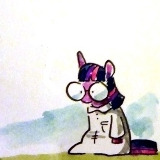










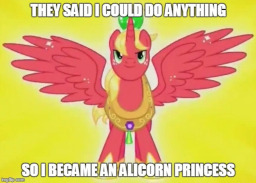

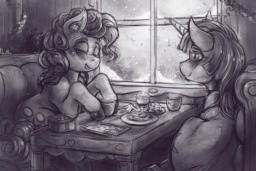



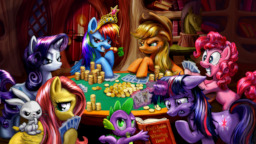

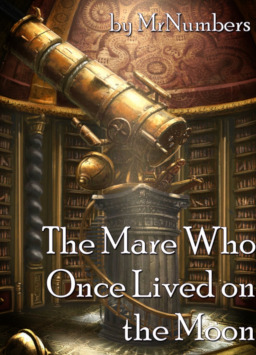



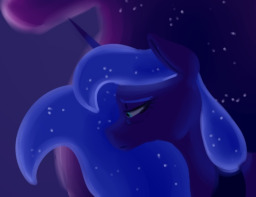




3177736
I began reading the transcript, but the very start of it is just... wrong. Money did not develop to track reciprocal exchange. This is not shrouded in the mists of time; we can point to specific times and places where money was invented, like China ~1000 BCE and Lydia in the 7th century BCE. AFAIK it was never done to track reciprocity. Just the opposite; it was devised to eliminate the need to track reciprocity. That's the entire purpose of currency.
(Here I use "money" to mean "coinage", which at first was pure, and valued by weight rather than by face value, and only gradually developed into fiat money, probably as a consequence of debasing.)
Reciprocity was common in "bands and tribes" (an oversimplification, but my intent here is not precise anthropology). There are many cases where tribes seem to have invented a currency, but look at them closely and you usually find the "money" is rarely or never exchanged (like Yap Rui stones), or exchanged on specific occasions according to peculiar rules, like 2 types of items exchanged in a cyclic graph, one always moving clockwise, the other counter-clockwise. Even wampum wasn't money; Puritan colonialists turned it into a currency. The reciprocity-based cultures they talk about are/were nowhere near developing what we call money, which seems to require advanced metal-working and a centralized state with a very large territory.
The typical intermediate step to coinage is currency, which is any widely-accepted barter good, including but not limited to standardized currencies, coinage, or fiat money. In some cases, like among the Yap islanders, you find a system of tracking reciprocity or at least historic exchanges (the large Rai stones, which each have a private history of ownership, but aren't physically exchanged); together with a system of currency (smaller stones), which are physically exchanged and are not used to remember earlier exchanges.
Even societies that have money with face values may have non-monetary currencies. The ruling class often doesn't want the lower classes to have money, because they know money is the greatest threat to ruling classes, as it allows people outside the capitalist class (the owners of production capital) to accumulate wealth. It was money that destroyed European feudalism, which until the 14th century had managed to make it impossible for anyone outside of the nobility to accumulate wealth, as the primary form of wealth was land, whose exchange was tightly regulated. (This is an oversimplification; what was traded was bundles of rights and obligations, associated with land demarcated by geographic features rather than by measurement. "Landowners" rarely owned their land in the modern sense; they were usually given bundles of rights associated with land in exchange for ongoing obligations to their lords. Outright individual ownership of property was just as threatening to the rulers as money was.)
So when rulers paid commoners, they paid them in product or currency, not money. An example is the salt that the Romans paid their soldiers, even though the Romans had coinage. Salt is a great currency because everybody wants it, it's easy to tell if it's real salt, and it's easy to measure by weight (in solid form) or by volume (if broken up like our salt is today). Also importantly to the upper classes, salt is not nearly as valuable per unit volume or weight as metal, and is perishable, so it's difficult for a commoner to stock up enough of it to become wealthy.
A contemporary example of non-monetary currency is cattle in Botswana and other parts of Africa. One cow is formally worth the same as any other cow, which often leads to hurt feelings if, e.g., a bride-price is paid with cattle felt to be of below-average quality. Again, poor marginalized people can't accumulate cattle; they have nowhere to keep it, and can't prevent others from stealing it.
An earlier example of currency is the bronze rings of the Bronze Age. At various times and places metal scraps were used like currency, and valued by weight. Trade with the Native far-Northeastern Americans was largely beaver pelts for whiskey, axe-heads, and guns. These are all barter currencies.
Reciprocity-tracking manifests as much weirder cultural artifacts and practices, like northwest-coast Native American potlatches, or the huge yam stockpiles used to identify or select local chiefs in... well, I can't remember, but probably somewhere in Polynesia or Africa. The cyclic-trading circle I mentioned was definitely in Polynesia, linking a group of islands in mostly-symbolic exchanges of 2 different types of items, such that one type always travelled clockwise, and the other type counter-clockwise. It was involved in maintaining friendly relations between islands, by tying together the current holder of an object with its former owners via oral history. At each exchange, both recipients had to memorize the history of owners of the item they received; otherwise, the item would lose all its accumulated value.
Potentially interesting podcast transcript ..
https://www.resilience.org/stories/2022-07-28/the-great-simplification-josh-farley-modern-monetary-myths/
I do not think we can change global human trajectory by thinkering with this abstracted away system called money (exactly because disconnect we create between activity, measurement and long-term outcome ...) but may be as part of force it may work ...
3136877
I didn't oh my god
Not sure if you've seen it, but Slice of Cheese got a small fan comic. See here.
3106466
Katie Cook made it for me IRL!